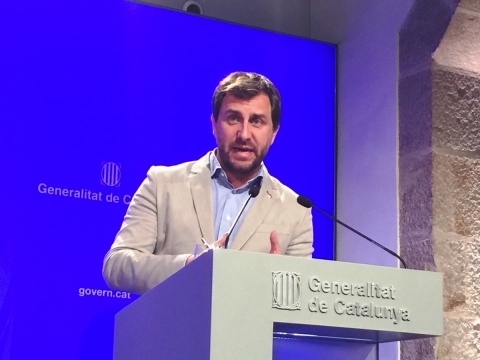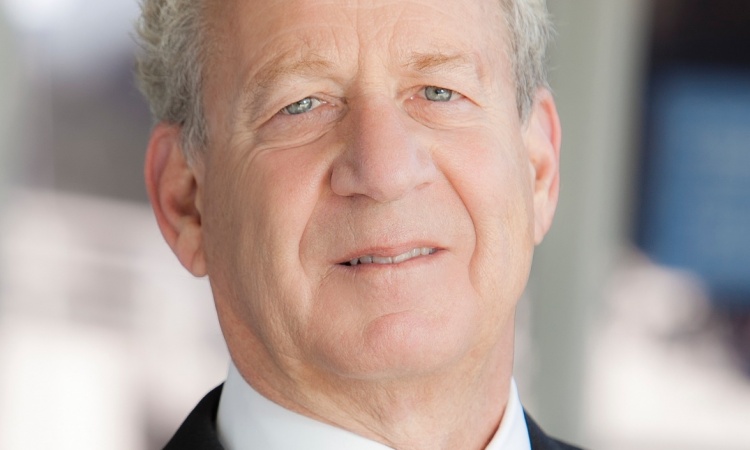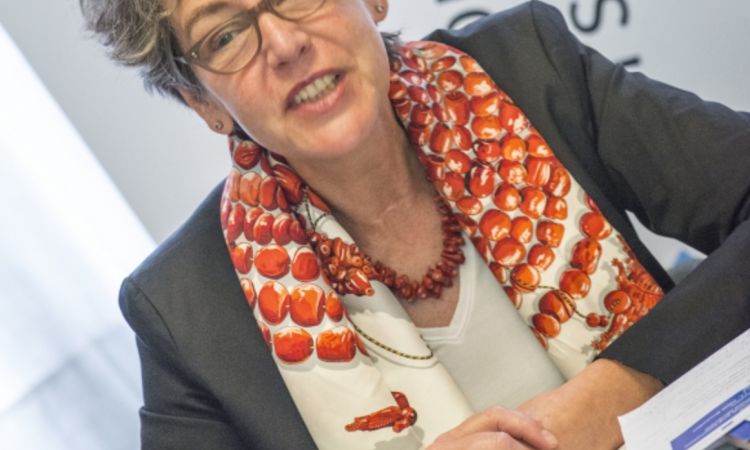Interview • Catalan Health Minister’s strategy
Big Data, de-privatisation and independence
Catalonia, Spain’s richest region, is launching one of the largest Big Data healthcare projects in Europe, after scrapping a polemic plan that would have enabled patient data to be shared with private for-profit companies.
Report: Mélisande Rouger

As the region confirms its leading role in healthcare technology, it is also de-privatising key hospitals to improve efficiency in a context of low funding, a decision that has received considerable attention in Spain. Antoni Comín i Oliveres, the Catalan Health Minister, came back on these highly discussed issues and explained what other challenges lie ahead for his region in our exclusive interview.
The Visc+ project was intended to collect all patient data in Catalonia. The Health Minister’s administration dropped this last summer. What will happen now?
Comín i Oliveres: ‘It’s important to remember that Big Data generates a lot of concern, especially regarding data confidentiality and information security. There are also concerns as to who will benefit from that information, i.e. public entities to improve healthcare or private companies for their own interests. Many questions remain open.
‘Big Data is fundamental to pursue health investigation, so it’s crucial for any project to be consensual both at the political and social level. We couldn’t have such a controversial programme as Visc+. We couldn’t have any plan that caused suspicion and defiance in politicians and among the public.
‘We held participative meetings with scientists, experts, researchers and social and political representatives, to let everyone explain their views on Big Data. All parties also signed a common resolution in Parliament
‘Our new plan is called PADRIS (programme for health research and innovation analysis) and will be implemented by the end of 2016. It will enable massive data analysis for research purposes using our seven million patients database and the database of the Health Catalan Institute. This is the second biggest Big Data plan in Europe after the United Kingdom.
‘Only research centres accredited by government will be able to use that information. These include non-profit private research groups such as the Puigvert foundation or the Sant Joan de Déu Hospital.
‘This will guarantee no one can make business with the citizens’ clinical history.’
A lot of controversy also surrounds your decision to buy back the activity of Clínica del Vallès in Sabadell from the Quirónsalud group…
‘This is creating a lot of political debate, but really it is quite simple. We are following the provision model defined in the Catalan Health Law in 1990, according to which the government must employ public hospitals first, and only if necessary privately run institutions – and then the government should work with non-profit private groups first. We are following this principle of preference.
‘The hospital activity purchase system had become messy over the years and we tied it up. Providers are very influential, but our mission is to guarantee maximum quality, equity and efficiency.
‘The activity at Clínica del Vallès could be done by two public hospitals: the Parc Taulí, also located in Sabadell, and the Consorci Sanitari, in nearby Terrassa. We have relocated two thirds of the activity in Taulí and a third in Terassa. We also save €1 million in the process.
‘You don’t need to be left wing to do this. Adam Smith said that private companies needed to compete in the market and criticised monopolies. However, a hospital consortium is like a small monopoly, limited in time and space. How can a company be competitive inside a monopoly?’
Big Data is fundamental to pursue health investigation
Antoni Comín i Oliveres
Are you then planning to buy other hospitals from private companies?
‘We are in talks with Quirónsalud concerning the purchase of the Hospital General de Cataluña (HGC), located in Sant Cugat. In 2005, the administration had planned to build two hospitals in Rubi and Cerdanyola, which are very close to Sant Cugat.
‘Experts have estimated the purchase would cost us €55 million. It’s actually cheaper to buy the HGC than to build two new hospitals. That’s a lengthy and costly process and, right now, there’s no money for that.
‘In addition, we could transfer basic healthcare activity to nearby hospitals in Terrassa and Taulí, and let the HGC do all the specialised work. Right now it’s the other way around and basic care hospitals provide specialised care, while the HGC provides basic care. It’s the world upside down.’
How will you tackle waiting lists, one of Catalonia’s major problems?
‘Last June, there were 161,730 people waiting for surgery, 3.1% more than a year ago. There were also 4.7% less patients waiting for diagnostic examinations. About 100% cancer patients had received surgery in less than 45 days and almost every heart surgery patient had waited less than 90 days.
‘Our plan is to reduce the waiting list for surgery and diagnosis by 50%, by improving information access, empowering primary care, increasing the proactivity of our healthcare system and augmenting activity. We need €100 million to do it.
‘To reduce the list to nought, we would need €1,000 million!’
How does Catalan healthcare compare to the rest of Europe?
‘I’d like to have an OCDE PISA report for Catalonia; I think we’d rank very high. We have a very good, high quality model, which is very linked with research and uses a large diversity of providers.
‘However, we have three major problems: waiting lists, wages and the fact that our foundations haven’t received a cent in years because of the crisis. Some hospitals are also ageing pretty fast. All of these issues are solvable with money and that is why we want to cancel our annual €16,000 million deficit – the biggest in the EU. We’re the only region in the EU with an 8% budget deficit. For us, the only way to do so is to become independent.‘
Profile:
Antoni Comín i Oliveres (Toni Comín) is the Catalan Health Minister under Carles Puigdemont’s administration, composed of Junts pal Si (‘Together for Yes’), the pro independence coalition formed by Convergència (right) and Esquerra Republicana (left) in 2015. Comín, a professor of social sciences and a philosopher, became a socialist deputy in June 2004. Proposed by Esquerra Republicana, he was appointed Health Minister.
20.01.2017





